Reading feels effortless, but it's actually quite complex under the hood. Most words are easy to process, but some words make us reread or linger. It turns out that LLMs can tell us about why, but only in certain cases... (1/n)
Reading feels effortless, but it's actually quite complex under the hood. Most words are easy to process, but some words make us reread or linger. It turns out that LLMs can tell us about why, but only in certain cases... (1/n)
Reading feels effortless, but it's actually quite complex under the hood. Most words are easy to process, but some words make us reread or linger. It turns out that LLMs can tell us about why, but only in certain cases... (1/n)

LLMs learn from vastly more data than humans ever experience. BabyLM challenges this paradigm by focusing on developmentally plausible data
We extend this effort to 45 new languages!

LLMs learn from vastly more data than humans ever experience. BabyLM challenges this paradigm by focusing on developmentally plausible data
We extend this effort to 45 new languages!
Also fits with some of the criticisms of Centaur and my faculty-based approach generally; if you want LLMs to model human cognition, give them more architecture akin to human faculty psychology like long and short-term memory.
arxiv.org/abs/2510.05141

Also fits with some of the criticisms of Centaur and my faculty-based approach generally; if you want LLMs to model human cognition, give them more architecture akin to human faculty psychology like long and short-term memory.
arxiv.org/abs/2510.05141
With CDS' @tallinzen.bsky.social, @shauli.bsky.social, @lambdaviking.bsky.social, @michahu.bsky.social, and Wentao Wang.
nyudatascience.medium.com/llms-switch-...

With CDS' @tallinzen.bsky.social, @shauli.bsky.social, @lambdaviking.bsky.social, @michahu.bsky.social, and Wentao Wang.
nyudatascience.medium.com/llms-switch-...
Our advocacy is working.
A key Senate committee has indicated that it will reject Trump’s proposed cuts to science agencies including NASA and the NSF.
Keep speaking up and calling your electeds 🗣️🗣️🗣️
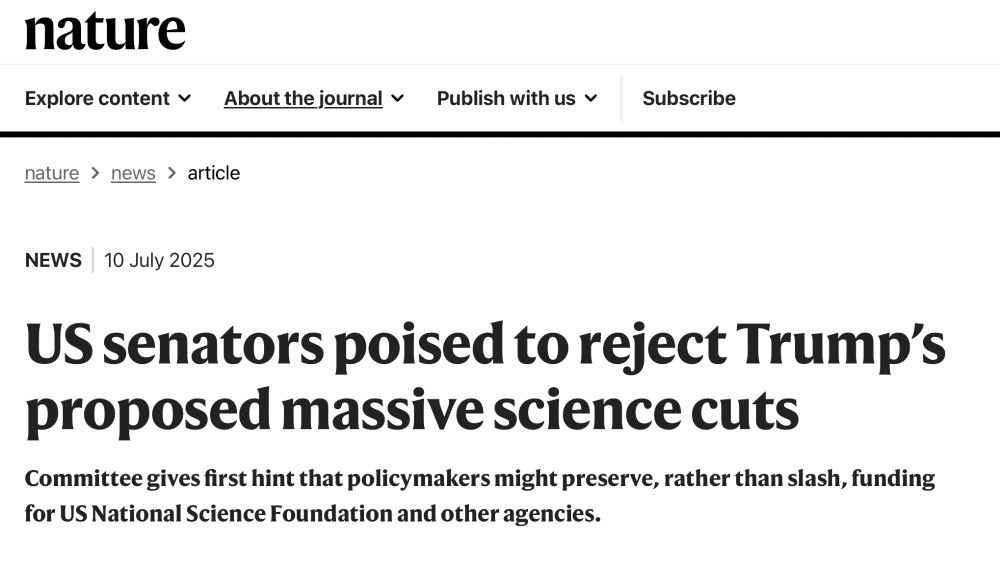
Our advocacy is working.
A key Senate committee has indicated that it will reject Trump’s proposed cuts to science agencies including NASA and the NSF.
Keep speaking up and calling your electeds 🗣️🗣️🗣️

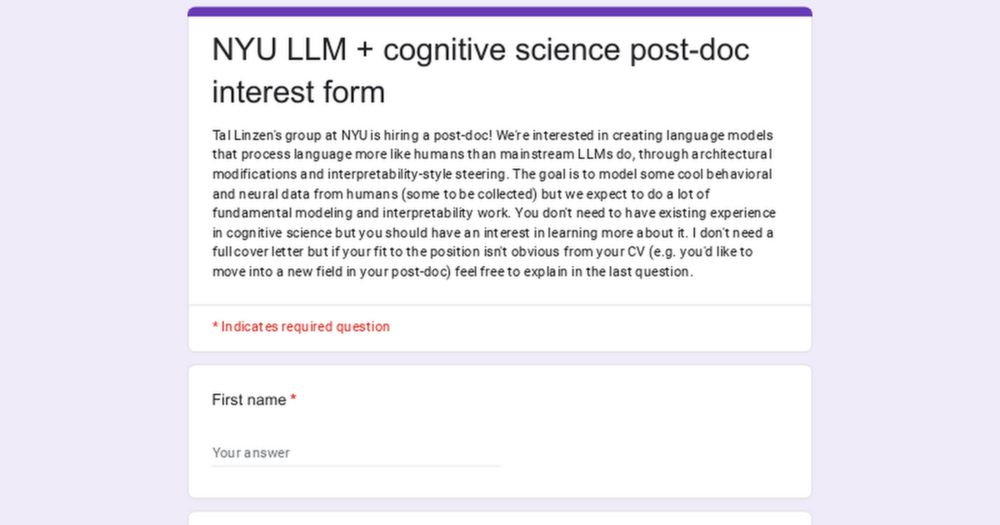

I’m happy to share that the preprint of my first PhD project is now online!
🎊 Paper: arxiv.org/abs/2505.23689
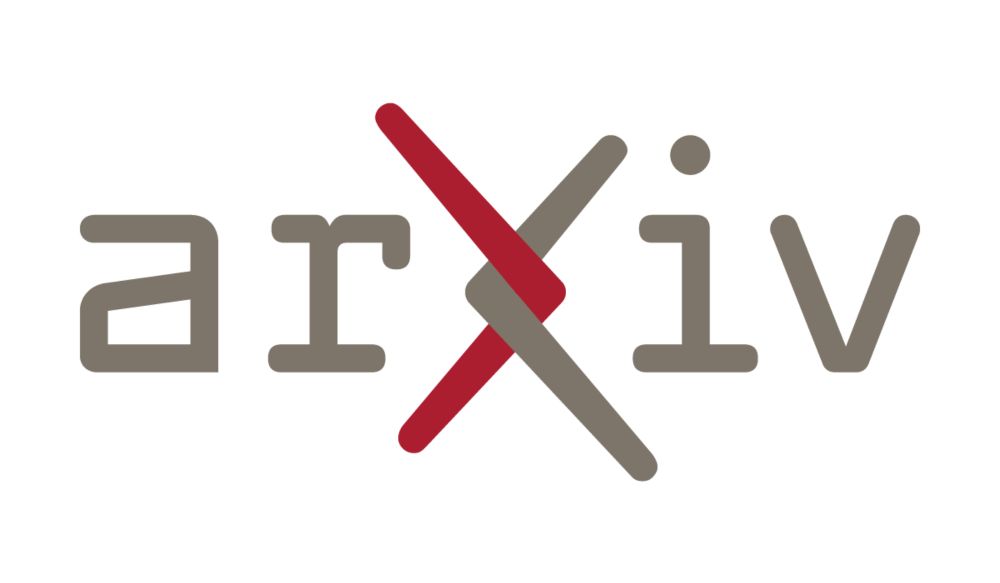
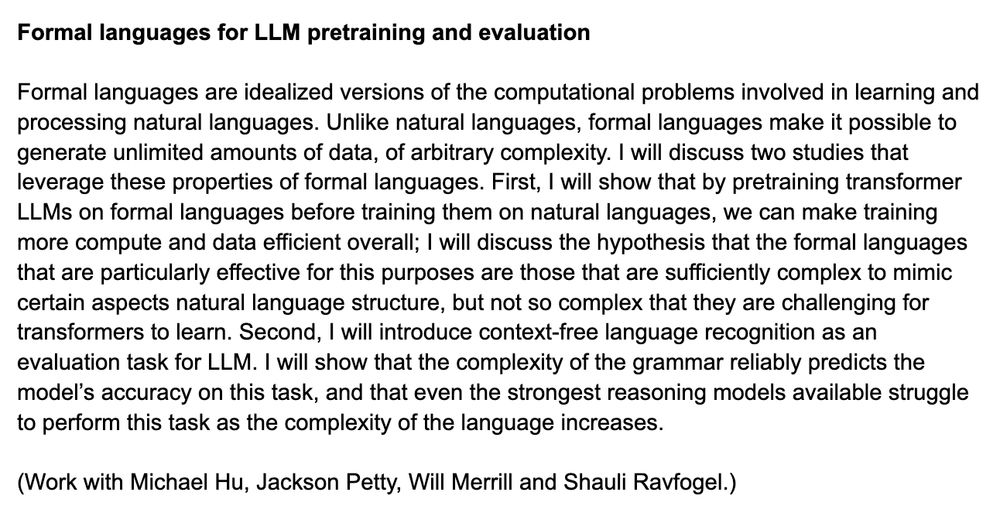
jacksonpetty.org/depth
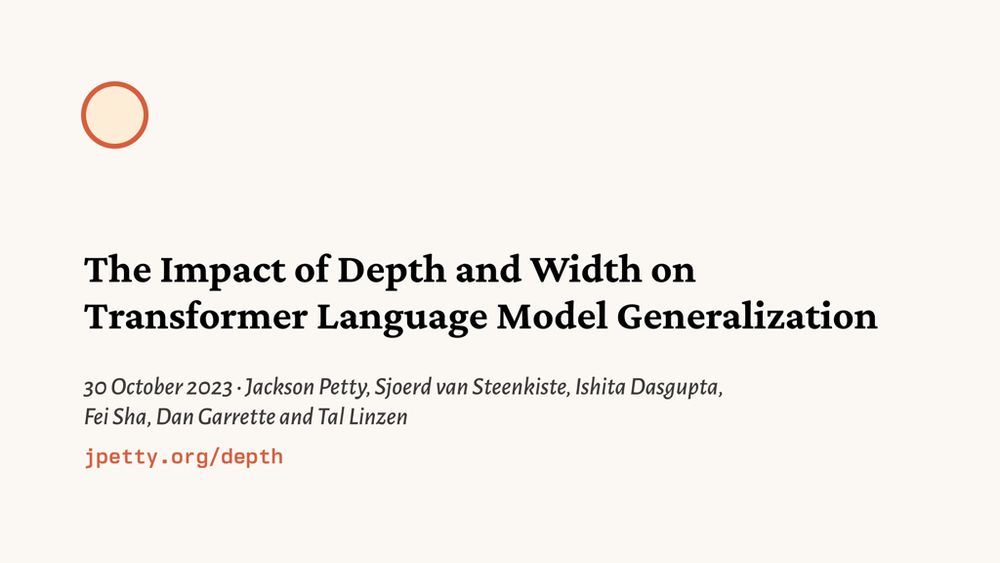
jacksonpetty.org/depth

